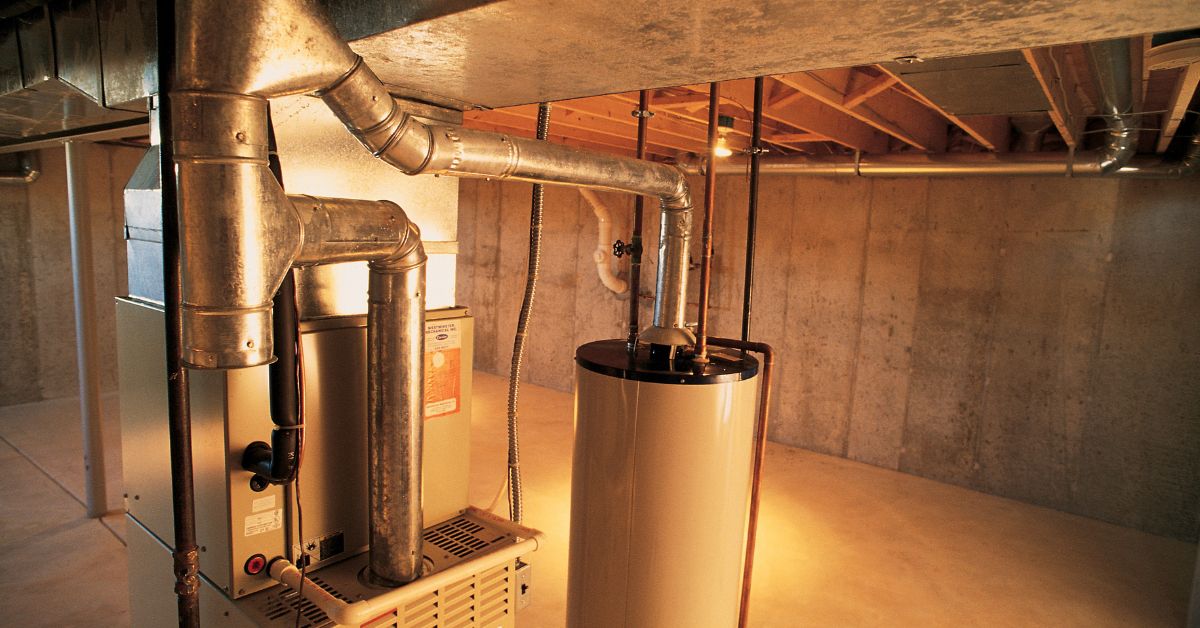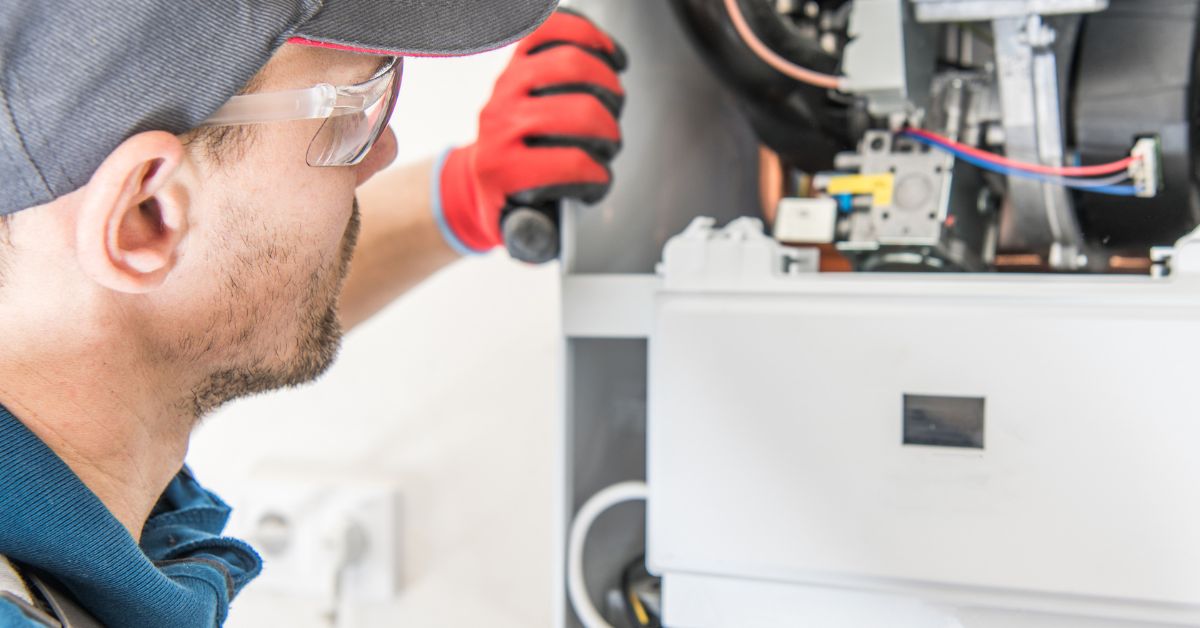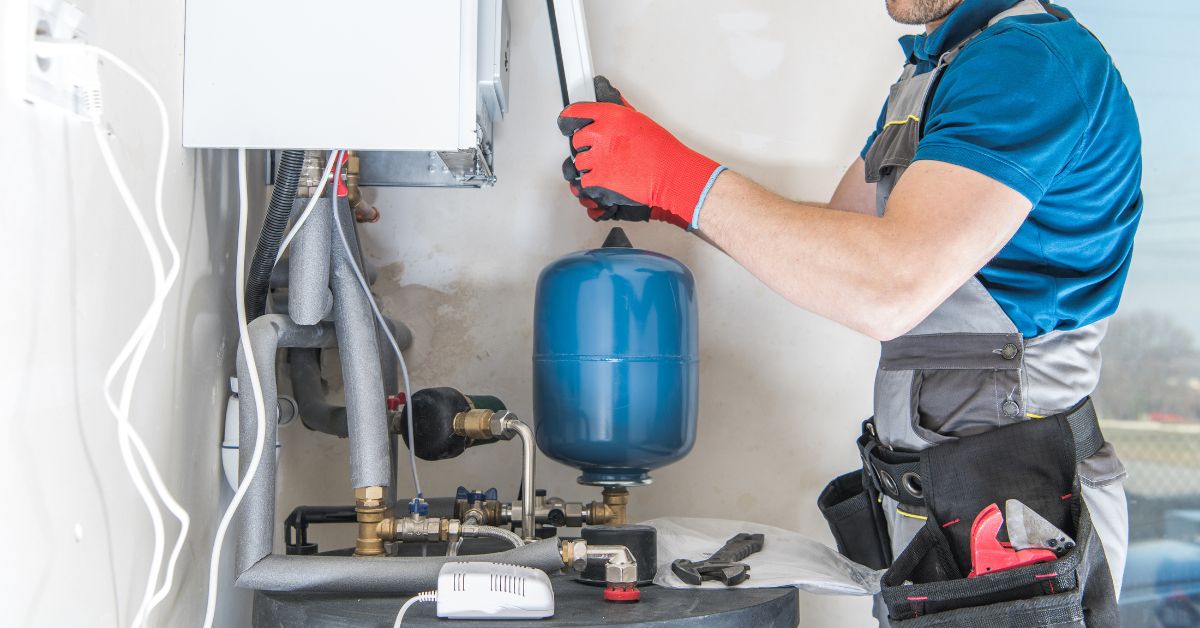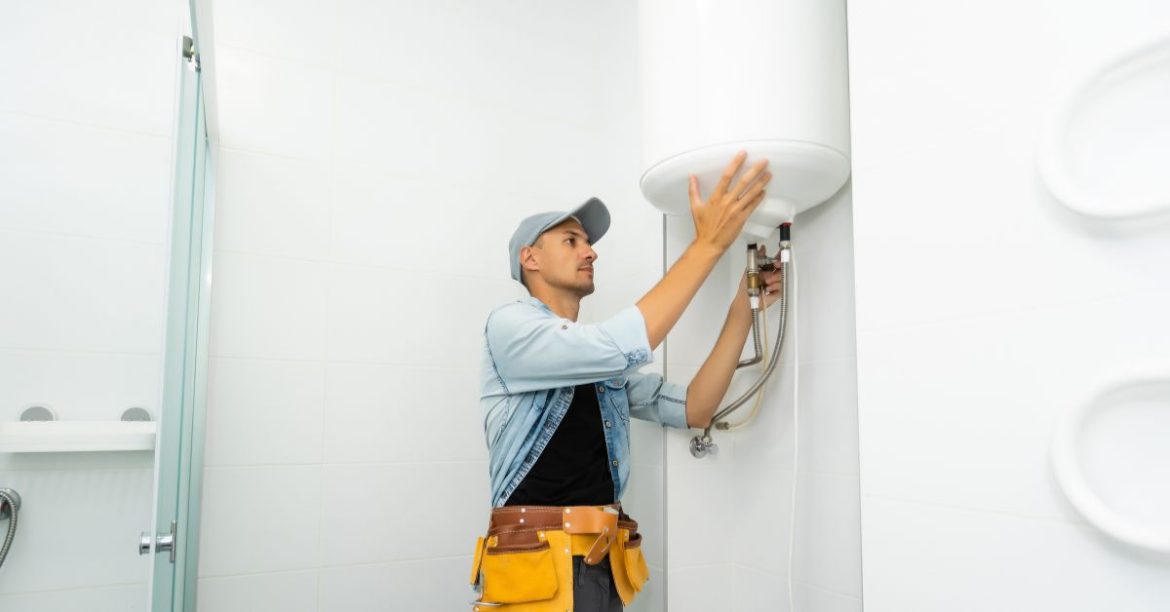Table of Contents
A reliable water heater is essential for everyday comfort, whether it’s a warm morning shower or efficiently tackling household chores. But what happens when your water heater starts acting up? Water heater issues can be inconvenient and stressful, from cold water surprises to unusual noises or leaks.
The good news? Many common problems can be fixed quickly and affordably with the right knowledge. In this guide, we’ll explore the most frequent water heater troubles, offer practical solutions, and help you decide when to call a professional. Whether it’s a simple adjustment or preventive maintenance, we’ve got you covered so you can get back to enjoying uninterrupted hot water in no time.
Frequent Water Heater Issues and Quick Fixes
Water heaters can develop a range of problems over time, but many issues have simple solutions that you can tackle yourself with the right guidance.
1. No Hot Water
Causes: A lack of hot water is often caused by a tripped circuit breaker, a malfunctioning heating element, or a problem with the gas supply in gas water heaters. Other less common causes could include faulty wiring or a malfunctioning thermostat.
Solutions:
- Check Electrical Panel: Inspect your circuit breaker panel for any tripped breakers and reset them if necessary.
- Test Heating Elements: For electric models, use a multimeter to test the heating elements. If they’re not functioning, replace them.
- Inspect Gas Supply: For gas models, ensure the pilot light is lit. If not, follow the manufacturer’s instructions to relight it. Check for obstructions or leaks in the gas supply line.
- Inspect Thermostat and Wiring: If the above steps don’t resolve the issue, the thermostat or wiring might need professional inspection.
2. Inadequate Hot Water
Causes:
Inadequate hot water can result from sediment buildup in the tank, incorrect thermostat settings, or an undersized water heater. Additionally, colder weather can increase water demand, giving the impression that the heater is less efficient.
Solutions:
- Flush the Tank: Over time, minerals and sediment accumulate at the bottom of the tank, reducing heating efficiency. Flush the tank regularly to remove these deposits.
- Adjust Thermostat Settings: Set the thermostat to a higher temperature, but ensure it does not exceed 120°F to prevent scalding.
- Upgrade Your Water Heater: If your household’s hot water demand has grown, consider upgrading to a larger capacity or a tankless water heater.
- Insulate Pipes: During cold weather, insulate hot water pipes to retain heat and reduce energy loss.
3. Water Too Hot
Causes: The thermostat may be set too high, malfunctioning, or there could be an issue with the heating element causing it to overheat.
Solutions:
- Lower Thermostat Settings: Turn the thermostat down to a safer level, ideally between 110°F and 120°F.
- Replace Faulty Thermostats: If the thermostat is unresponsive or continues to overheat, replace it.
- Inspect Heating Elements: Faulty heating elements can overheat water. Test and replace them if necessary.
4. Hot Water Leaking
Causes: Leaks can occur due to loose connections, corroded parts, excessive pressure inside the tank, or a damaged tank.
Solutions:
- Tighten Connections: Inspect all fittings and connections, and tighten them as needed.
- Check for Corrosion: Examine valves, pipes, and the tank for rust or corrosion. Replace corroded parts promptly.
- Test Pressure Relief Valve (PRV): The PRV is designed to release pressure if it becomes too high. If it’s leaking, it may need replacement.
- Inspect the Tank: If the tank itself is leaking, it might need to be replaced as internal damage is often irreparable.
5. Rusty or Smelly Water
Causes: Rusty water usually indicates a deteriorated anode rod, while smelly water is often caused by bacterial growth in the tank.
Solutions:
- Replace the Anode Rod: Check the anode rod for wear. If it’s heavily corroded, replace it to prevent further tank damage.
- Flush and Disinfect the Tank: Use a solution of water and hydrogen peroxide to flush and disinfect the tank. Ensure the water heater is set to at least 140°F temporarily to kill bacteria.
- Install a Water Filter: If odors persist, consider installing a whole-house water filter to reduce contaminants.
6. Noisy Tank
Causes: Sediment buildup is the primary cause of popping or rumbling noises. As water is heated, sediment traps steam bubbles, leading to these sounds.
Solutions:
- Flush the Tank: Perform a thorough tank flush to remove sediment buildup. This process also improves heating efficiency.
- Install a Water Softener: If you live in an area with hard water, installing a water softener can reduce mineral deposits and extend your heater’s lifespan.
- Inspect Heating Elements: A malfunctioning heating element can sometimes produce unusual noises. Test and replace if needed.

water heater repair
Leaks and Physical Damage
Leaks and physical damage in water heaters are common issues that can arise due to wear and tear, corrosion, or environmental factors. Addressing these problems promptly can prevent further damage and ensure your water heater operates safely and efficiently.
1. Inlet/Outlet Leaks
Causes: Loose or worn connectors can lead to leaks around the water inlet or outlet. Over time, wear and tear, as well as exposure to high temperatures and pressure, can degrade these connectors.
Solutions:
- Inspect connections for signs of wear, rust, or mineral deposits.
- Tighten loose fittings with an adjustable wrench. If the connector is damaged beyond repair, replace it with a high-quality, compatible part.
- Apply plumber’s tape to threaded connections to ensure a tight, leak-free seal.
2. Damaged Pressure Relief Valve (PRV)
Importance: The PRV ensures the tank does not over-pressurize, which could lead to dangerous conditions like tank explosions. It’s a critical safety feature that should always function properly.
Solutions:
- Test the PRV regularly by lifting its lever to check for a discharge of water. If no water flows or if the valve leaks continuously, it’s a sign of malfunction.
- Replace the PRV if it shows signs of wear or persistent leaking. Ensure the replacement valve matches the specifications of your water heater.
- When installing a new PRV, clean the surrounding area and use a plumber’s tape to secure a tight fit.
3. Sides or Tank Leaks
Causes: Internal corrosion, often caused by neglected maintenance or an expired anode rod, can weaken the tank walls. Physical damage from external impact may also result in cracks.
Solutions:
- Conduct a visual inspection for rust spots, water pooling, or visible cracks.
- If rust or corrosion is confined to a small area, apply an epoxy sealant as a temporary fix.
- For severe corrosion or structural damage, replace the water heater to prevent further issues. Consider installing a water softener if hard water is a contributing factor.
4. Condensation
Causes: Condensation occurs when cold water enters the tank, and the external surface reacts with warm ambient air, especially in humid environments.
Solutions:
- Insulate the water heater tank with a water heater blanket to prevent surface temperature fluctuations.
- Lower the thermostat to minimize condensation formation.
- Ensure adequate ventilation in the area around the water heater to reduce humidity levels. Use a dehumidifier if necessary.

water heater repair
Advanced Troubleshooting
Modern water heaters come equipped with diagnostic tools that can help identify issues quickly. Here’s how to make the most of these features:
- Error Codes: Many modern water heaters display error codes when problems arise. Refer to the manufacturer’s guide for a list of error codes and their meanings. Understanding these codes can help you diagnose the issue without guesswork.
- Reset Button: If your water heater suddenly stops working, locate and press the reset button, usually found on the thermostat. This can resolve minor glitches or overheating.
- Burner Assembly Maintenance: For gas models, inspect and clean the burner assembly. A weak or irregular flame may indicate debris buildup or a clogged burner, which can impact efficiency.
- Thermocouple Testing: For older gas water heaters, ensure the thermocouple is functioning correctly, as a faulty one can prevent the pilot light from staying lit.
When to Call a Professional
While some water heater problems can be handled DIY, others require expert attention. Here are signs it’s time to call a professional:
- Persistent Leaks or Corrosion: If leaks persist even after tightening connections or replacing parts, the issue may be deeper, such as internal tank corrosion.
- Electrical Issues: Frequent tripping of circuit breakers or signs of electrical damage indicate a potentially hazardous problem that should be addressed by a licensed electrician.
- Unusual Noises: Banging or knocking sounds that persist even after flushing the tank might suggest severe sediment buildup or internal damage.
- Gas Odors: If you smell gas around a gas water heater, immediately turn off the gas supply and contact a professional.
Hiring a professional ensures your safety and prevents further damage to the unit, potentially saving you money in the long run.
Preventive Maintenance Tips
Regular maintenance can extend the life of your water heater and ensure optimal performance. Follow these tips:
- Annual Flushing: Flush your water heater at least once a year to remove sediment and prevent clogging.
- Anode Rod Inspection: Check the anode rod every 2-3 years. This component protects your tank from rust and should be replaced if heavily corroded.
- Pressure Relief Valve Testing: Lift the lever on the PRV to test its functionality. If it doesn’t release water or leaks, replace it immediately.
- Thermostat Settings: Keep the thermostat set at 120°F to prevent overheating, reduce energy usage, and minimize the risk of scalding.
- Professional Inspections: Schedule a professional inspection every 2-3 years to identify and address potential issues before they become major problems.

water heater repair
Energy-Efficient Upgrades
Upgrading to an energy-efficient water heater can significantly reduce utility bills and your carbon footprint. Here are popular options:
- Tankless Water Heaters: These provide hot water on demand, eliminating the need for a storage tank. They save energy and space while delivering endless hot water.
- Hybrid Models: Combining heat pump technology with traditional water heating, hybrid models are highly efficient and ideal for eco-conscious homeowners.
- Solar Water Heaters: Using solar panels to heat water, these systems are an excellent choice for reducing reliance on conventional energy sources.
- High-Efficiency Storage Tanks: These models use better insulation and advanced heating mechanisms to cut energy consumption.
Investing in an energy-efficient model not only reduces your bills but also adds value to your home.
Conclusion
Water heater troubles can be frustrating, but most issues are manageable with the right knowledge and tools. From no hot water to noisy tanks, understanding the root cause can save time and money. Regular maintenance is the best way to extend your water heater’s lifespan and ensure consistent performance.
When problems persist or safety concerns arise, it’s wise to call a professional. Additionally, consider upgrading to an energy-efficient model to reduce utility bills and enhance your home’s value. With these tips, you can keep your water heater running smoothly and enjoy uninterrupted hot water every day.
FAQs
1. How long does a water heater typically last?
Most water heaters last 8-12 years with proper maintenance.
2. How often should I flush my water heater?
Flush your water heater annually to prevent sediment buildup.
3. Can I repair my water heater myself?
Yes, for minor issues like adjusting the thermostat or replacing anode rods. However, consult a professional for complex problems.
4. What are the benefits of tankless water heaters?
Tankless water heaters save energy, provide endless hot water, and take up less space.
5. What size water heater do I need?
It depends on your household size and water usage. A professional can help you choose the right capacity.
